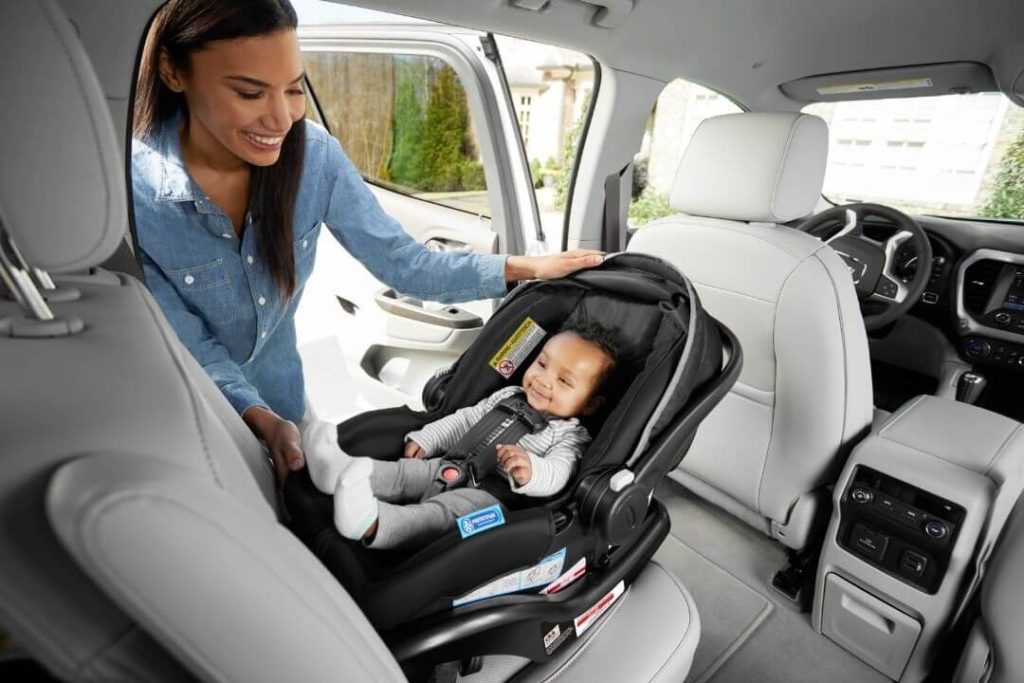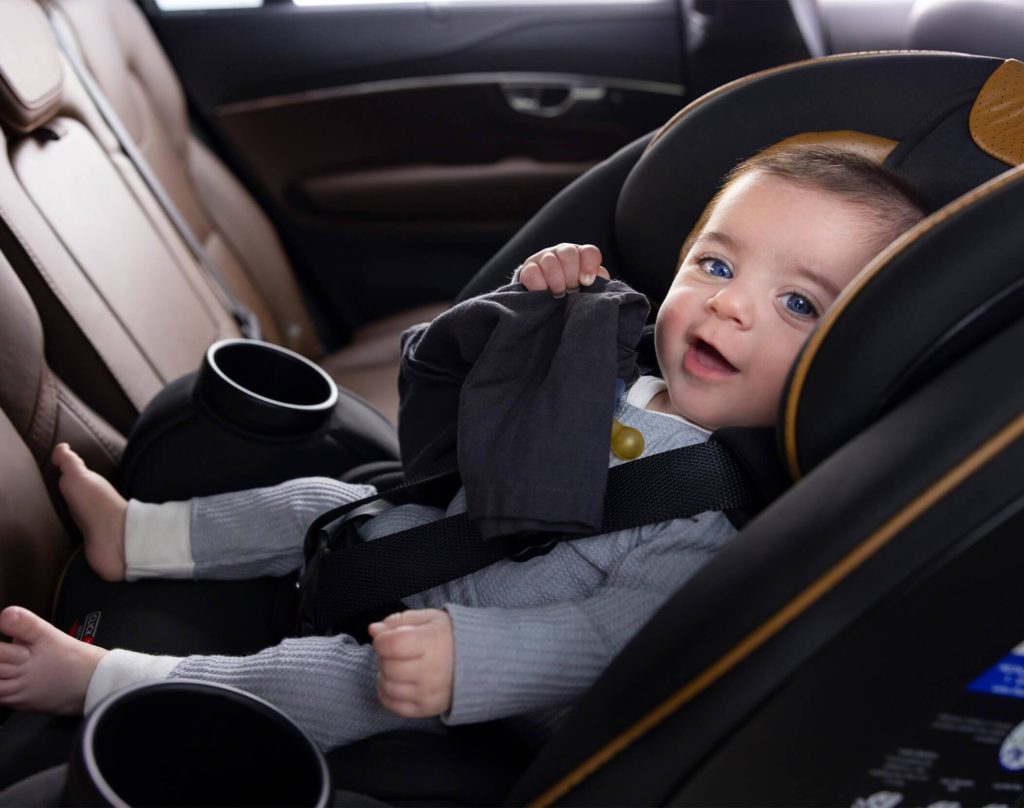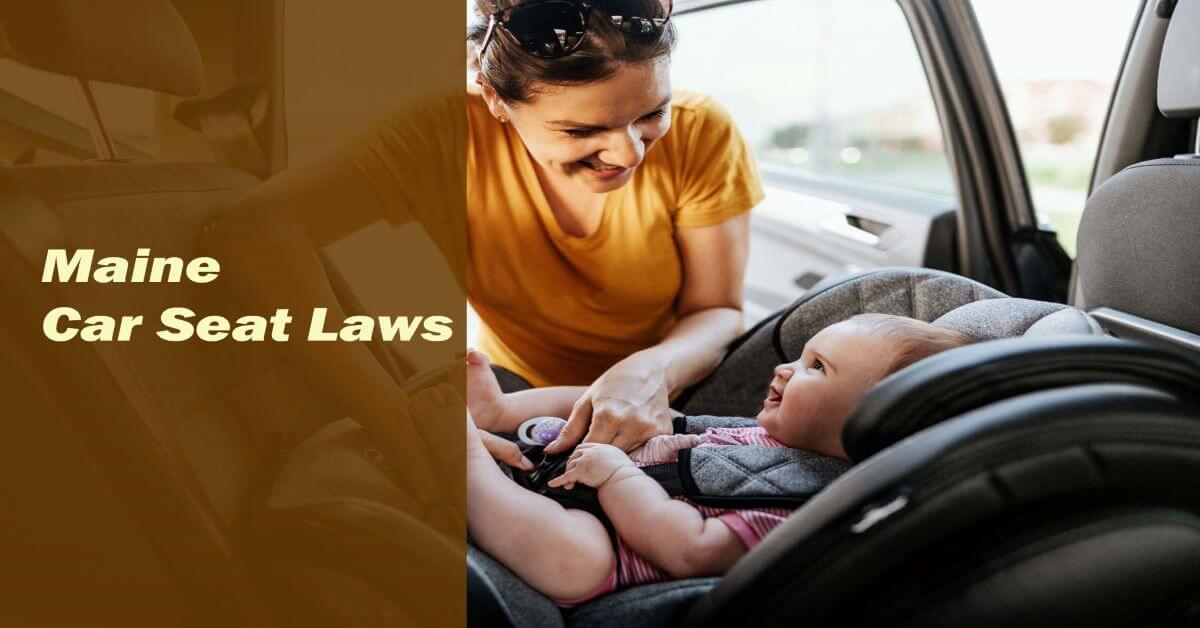Maine car seat laws 2023 establish legal requirements, making it mandatory for parents or caregivers to use the appropriate restraint system for children under a certain age or size.
Properly using and placing car seats and booster seats for children reduces the harm to child passengers in vehicle crashes.
These regulations provide vital directives for appropriately utilizing child restraint devices in automobiles, guaranteeing that children are comprehensively shielded while navigating Maine’s roadways.

Browse this Post
- 1 Maine Official Car Seat Laws: Prevent Injuries And Deaths On The Road
- 2 Rear-facing Car Seat Law in Maine
- 3 Forward-facing Car Seat Law in Maine
- 4 Booster Car Seat Law in Maine
- 5 Maine’s Child Passenger Safety in Front Seat: When It’s Okay to Go Up Front
- 6 FAQs For Maine Car Seat Laws 2023
- 7 Final Words
Maine Official Car Seat Laws: Prevent Injuries And Deaths On The Road
The high number of injuries and fatalities among child passengers in motor vehicle crashes in the United States is a concerning issue. As per the Centers for Disease Control and Prevention’s report, we can see that,
“In 2021, 711 child passengers ages 12 and younger were killed in motor vehicle crashes in the United States, and in 2020 more than 63,000 were injured. Of the children who were killed in a crash, 36% were not buckled up.”
It’s concerning that the child passenger fatality rate in the U.S. is significantly higher than that of other wealthy nations. One of the most crucial takeaways from these statistics is that many injuries and deaths are preventable by following the Maine restraint system.
The official Maine car seat laws stated that,
“Child restraint system” means any device, except a Type I seat belt or Type II seat belt, designed for use in a motor vehicle to restrain, seat and position children who weigh 80 pounds or less and that meets the requirements of the Federal Motor Vehicle Safety Standard 213”
- Chapter 19: OPERATION, Maine State Legislature
Rear-facing Car Seat Law in Maine
Children under two years of age fall under this particular requirement.
When transporting a child in this age group, the vehicle operator must ensure that the child is correctly secured in a rear-facing child restraint system or a convertible child restraint system that is appropriately installed in the rear-facing position.
Maine State Legislature, in the 19th chapter, said that,
“When a child who is less than 2 years of age is being transported in a motor vehicle…the operator shall ensure that the child is properly secured in a rear-facing child restraint system or convertible child restraint system properly secured in the rear-facing position in accordance with the child restraint system.”
In a frontal collision, where the vehicle comes to a sudden stop, the forces exerted on the passengers can be significant. Rear-facing car seats are specifically designed to mitigate the risk of severe head and neck injuries.
Exception of the Law: When a child has medical conditions or physical limitations that make it impractical or unsafe to use a rear-facing car seat, it is crucial to seek guidance from a medical professional.

Forward-facing Car Seat Law in Maine
The child’s growth and weight primarily drive the transition from a rear-facing to a forward-facing car seat because when children grow and their weight exceeds the limit specified by the manufacturer, their safety needs change.
Children must use a harnessed forward-facing car seat until they reach a weight limit of 55 pounds. This weight limit ensures that children remain in the harness system until they are of an appropriate size and weight to transition to a different restraint system.
A well-fitted harness distributes crash forces evenly across the child’s body. This minimizes the concentration of force on any one area, reducing the risk of severe injuries.
Exception of the Law: Car seat laws vary by state or locality. Some jurisdictions may have specific rules or exceptions that differ from the standard recommendations. It’s essential to be aware of and comply with the laws in your specific area.
Booster Car Seat Law in Maine
When it comes to determining when a child can transition to a booster seat based on height, it’s crucial to follow the car seat manufacturer’s guidelines explicitly.
Following the manufacturer’s guidelines precisely ensures that the child uses the booster seat at the appropriate stage of their development and size, maximizing their safety while riding in a vehicle.
Maine has unique criteria for when a child can transition from a forward-facing harnessed car seat to a booster seat. The criteria is that the child must reach a weight of 55 pounds before transitioning to a booster seat.
Booster seats help distribute crash forces over a child’s more robust skeletal structure, such as the pelvis and collarbone, rather than vulnerable areas like the abdomen and neck. This significantly reduces the risk of severe injuries during a collision.
Exception of the Law: Booster seat laws typically apply to private vehicles. Public transportation, such as buses and trains, may have different safety regulations, and booster seats may not be mandated.
Some vehicles have unique seating configurations that may not accommodate booster seats effectively. In such cases, alternative seating arrangements or restraint systems may be recommended by car seat experts.

Maine’s Child Passenger Safety in Front Seat: When It’s Okay to Go Up Front
Maine, like many other states, has guidelines and regulations regarding when children can sit in the front seat of a vehicle. Here are some recommendations to ensure the safety of your child:
- Children should not sit in the front seat of a vehicle until they are at least 13 years old because the front seat is generally considered the most dangerous place for children due to the risk of injury from airbags.
- When considering allowing your child to sit in the front seat, ensure that they can sit upright with their back against the seat, their feet on the floor, and the seat belt fits properly across their lap and shoulder.
- Knowing the potential risks is crucial if your vehicle has front-seat airbags. The force with which airbags deploy can cause serious injuries to young passengers.

FAQs For Maine Car Seat Laws 2023
1. Are There Any Upcoming Changes to Maine’s Car Seat Law?
There are no pending changes at this time, indicating that Maine’s current laws continue to prioritize the protection of young passengers in motor vehicles. However, parents need to stay informed about current laws to ensure the safety of children while traveling on Maine’s roads.
2. What Are the Laws Regarding Leaving a Child in a Car in Maine?
There is no specific law regarding leaving the child alone, but it is an absolute must to ensure that children are never left alone in a car, especially in hot weather. This is a fundamental safety precaution that all parents should be aware of regardless of circumstances.
3. What Is the Taxi Car Seat Law for Child Passengers in Maine?
Taxis in Maine are obligated to have a child seat available for the safe transportation of young passengers. This legal requirement underscores the commitment to child passenger safety, ensuring that children can be properly restrained during taxi rides to minimize the risk of injury in a crash.
4. Are There Laws Against Smoking in a Car with a Child Present in Maine?
Maine has implemented strict regulations to protect minors from exposure to secondhand smoke in motor vehicles. This prohibition on smoking in a motor vehicle when a minor is present, irrespective of whether the windows are open or closed, is a significant step in promoting child health and well-being.
5. What Are the Consequences of Violating Car Seat Laws in Maine?
Violating car seat laws in Maine can have several consequences, including legal penalties and, more importantly, compromising the safety of a child. Maine’s car seat laws are in place to protect child passengers. Violating these laws can result in fines ranging from $50 to $250, depending on the specific circumstances of the violation.
Final Words
Maine’s car seat laws not only protect individual children but also contribute to broader community safety and policy change. These laws are a model for prioritizing child passenger safety, encouraging other states and regions to implement similar regulations.
As concerned citizens, parents in Maine can advocate for and support initiatives that promote child safety, creating a safer and more secure future for all children on the roads.
More Resources on Car Seat Laws
My name is Olivia Brown, and I’m a New York-based blogger and stay-at-home parent. Former business executive enjoying retirement and time with kids Lily and Max. On my blog, I review things for kids and offer my honest thoughts and insights to other parents who may be having the same or similar experiences.





